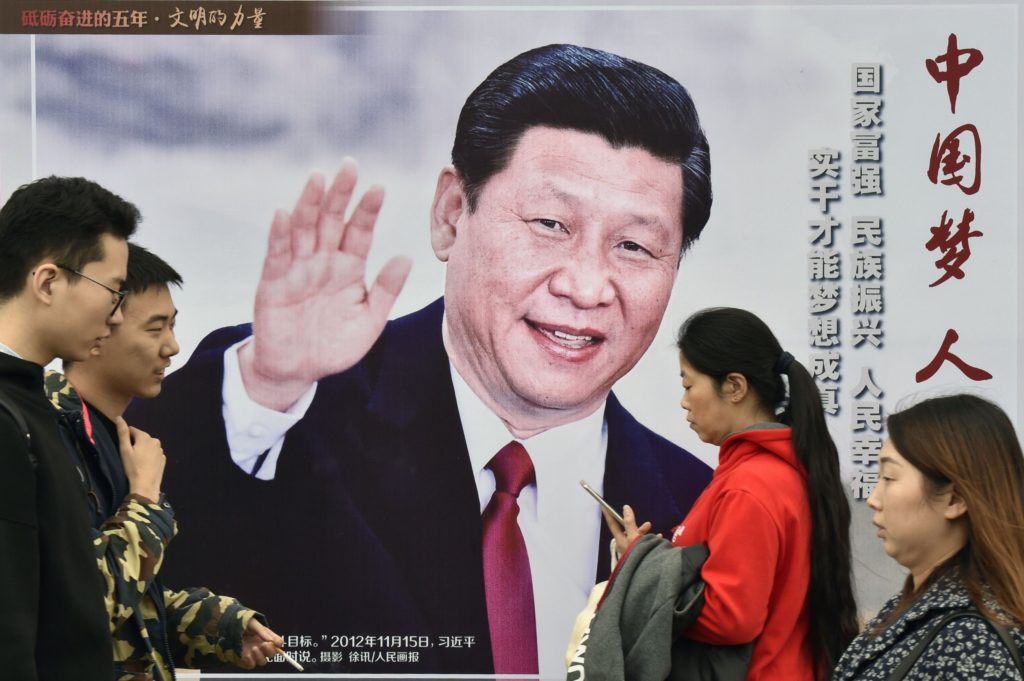“Xi Jinping is a man on a mission,” the influential Washington D.C.-based Foreign Affairs magazine says.
Much of his focus is on domestic issues such as eliminating corruption, political rivals, and internal dissent. But he’s also picking fights with other countries, “especially the United States.”
Foreign Affairs says, “Xi is impatient with the status quo, possesses a high tolerance for risk, and seems to feel a pronounced sense of urgency in challenging the international order.” That could be dangerous, especially his willingness to take risks.
Xi thinks the world is changing in a way that gives China a limited “window of opportunity” — 10 or 15 years — to seize a more powerful position in the global order. If he succeeds, “China will position itself as an architect of … multipolarity, its economy will escape the so-called middle-income trap, and the technological capabilities of its manufacturing sector and military will rival those of more developed countries.”
But Xi has put China “on a risky trajectory … that threatens the achievements … [of] the post-Mao era.” He wants to rein in China’s private sector, has a rigid view of governance based on ideology and personal loyalty, and is pursuing a “paranoid nationalism.” In short, he sees himself as an emperor, and has all the hubris that comes with that. The danger is that “[a]n environment in which an all-powerful leader with a single-minded focus cannot hear uncomfortable truths is a recipe for disaster.”
Xi believes the West’s power and influence are in decline, an impression fueled by America’s military quaqmires in Iraq and Afghanistan, and its 2008 financial crisis at home. He wants “to significantly bolster the Chinese military’s warfighting capabilities.” To what end? “On many issues,” such as Taiwan, “he appears to want final resolution on his watch,” although the Foreign Affairs article expresses doubt that he’s willing to run the risks and accept the costs involved in seizing Taiwan by force, including risking war with the United States.
Meanwhile, in his own country he faces a “deteriorating demographic and economic outlook” because China’s population is aging and shrinking, its economy is slowing, and its workforce is still poorly educated in an increasingly technological world. And Xi’s reversion to the autocracy, one-man rule, and cult of personality characteristic of the Mao era “threatens to undo the great progress China has made over the past four decades.”
The problem isn’t only shutting down China’s internal progress, but also pinning its external policies on the judgments — or misjudgments — of one man, who, if he guesses wrong, may become desperate and do the things desperate men are wont to do. By that I’m specifically alluding to starting a war, either intentionally or by miscalculation. Most well-informed China-watchers don’t think Xi is overtly seeking a military confrontation with the U.S., but few if any believe he’d shrink from one, should he or we stumble into a conflict. In this respect, the Foreign Affairs article questions his competence, and we’ve recently had competence issues on our own side, although U.S. foreign policy clearly is in better hands now.
As for countering Xi’s aggressiveness, the article argues the U.S. needs to strengthen its democracy, invest in innovation, and maintain leadership in emerging technologies. “Likewise, a more active and forward-looking U.S. role in shaping the global order would limit Beijing’s ability to spread illiberal ideas beyond China’s borders” the article says.
This is the opposite of Trump’s isolationist and “America First” vision of the U.S.’s role in the world, but President Biden is now leading America in that direction again by renewing old alliances and stiffening our government’s resolve against Chinese aggressions, while offering to work with China where agreements are possible.
Given China’s importance and influence in the world, I encourage this blog’s readers to pay attention to China and how our government is handling the issues it poses in the changing global order. To explore this topic in deeper detail, read the entire Foreign Affairs article here.
Photo: This man is smiling; these people aren’t. I’m sure glad to be an American, not one of Emperor Xi’s subjects.
